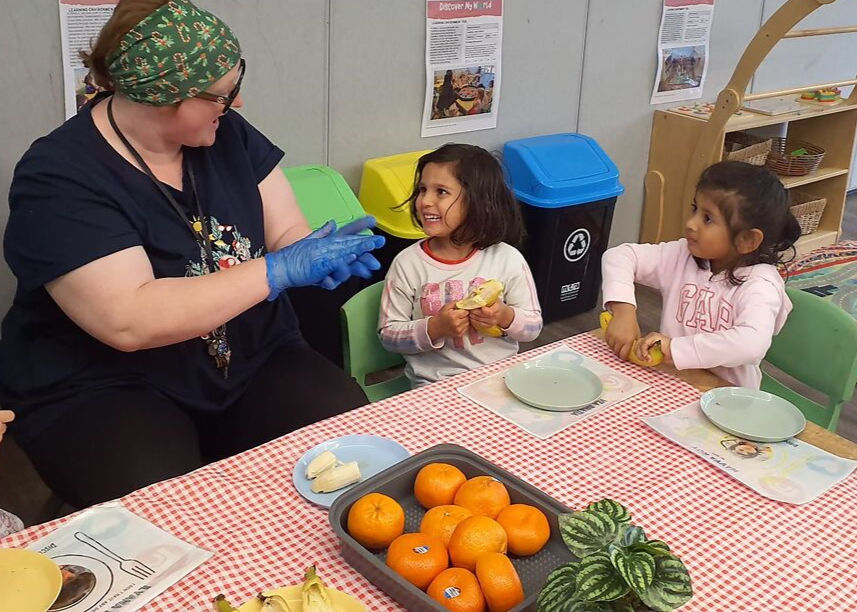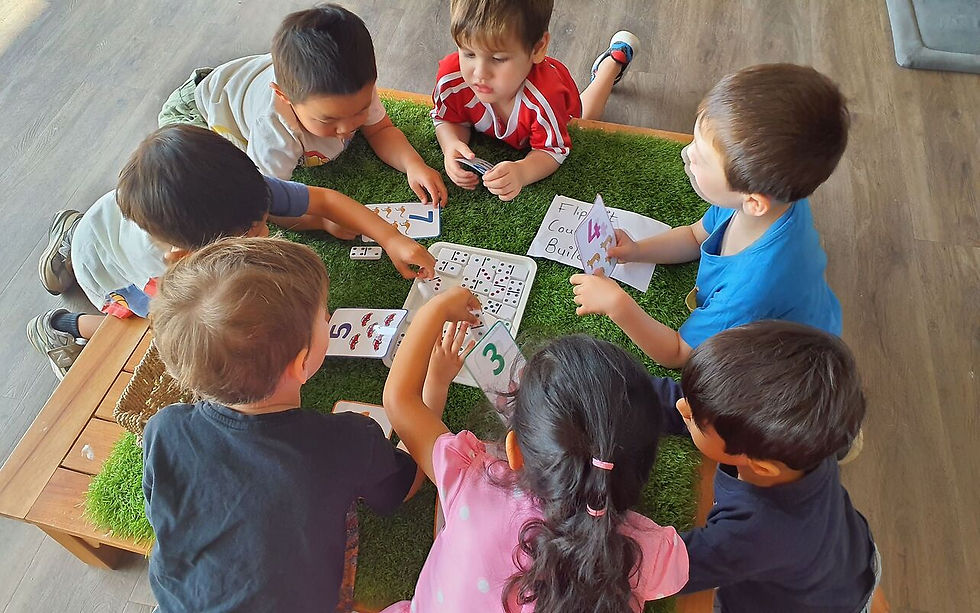Recycle Week at DMW: A Hands-On Start to Our Sustainability Project
- Discover My World

- Nov 19, 2025
- 3 min read

Last week, our children embraced Recycle Week with enthusiasm, curiosity and a growing sense of responsibility for the world around them. As we stepped into our monthly project on Sustainability, this focus provided the perfect foundation for meaningful conversations and hands-on learning across the service.
What unfolded throughout the week wasn’t just about sorting rubbish or talking about coloured bins. It was about helping children understand their influence, how their everyday choices can protect our environment, support wildlife and make a positive difference in our community.
Learning That Makes an Impact
A highlight of the week was our Recycleman incursion. His lively demonstrations, storytelling and practical activities captured the children’s attention as they explored:
What happens to waste after we throw it away
Why bins are colour-coded and how to use them correctly
How recycling helps keep animals and natural spaces safe
How everyday materials can be reused and turned into something new
The children were fully engaged, asking thoughtful questions and showing real pride in identifying sustainable choices.
Sustainability in Action

Throughout the week, educators set up a range of rich provocations that encouraged children to think differently about the resources around them. Loose parts became construction materials, recycled items turned into artwork, and children experimented with reusing everyday objects to spark their creativity.
These hands-on activities didn’t just teach recycling; they built confidence, problem-solving skills and a mindset of care and responsibility. This aligns beautifully with our ongoing Sustainability project, where children will continue exploring how our actions impact the environment and how we can work together to look after our planet.
Embedding Sustainable Practices Every Day
At DMW, sustainability is woven into our everyday routines. Children help care for gardens, participate in food-scrap sorting, explore nature play, and contribute to discussions about reducing waste and conserving energy. Recycle Week simply amplified these ideas and helped set the tone for our month-long focus.
Learning That Travels Home
We loved hearing stories from families about children reminding them which bin to use, asking where rubbish goes, or proudly explaining why recycling matters. These moments show just how powerful early learning can be; children feel capable, knowledgeable and eager to take the lead.
Why Sustainability Learning Matters for Children Under 5
Early childhood is the perfect time to build the foundations of environmental awareness. Experiences like recycling, reusing materials and caring for the environment support key areas of development:

1. Cognitive Development
Sorting materials, recognising patterns, and identifying where items belong builds early numeracy, classification skills, and problem-solving abilities.
2. Language Development
Children learn new vocabulary such as reuse, recycle, environment, waste, and habitat, while also developing confidence to ask questions, share theories and engage in rich conversations.
3. Social and Emotional Development
Taking care of living things, understanding their impact and working together builds empathy, responsibility, and a sense of belonging to a community.
4. Creativity and Imagination
Using recycled and loose-parts materials encourages open-ended play, innovation and flexible thinking.
5. Identity and Agency
Children feel proud knowing they can make a difference. These small actions empower them to see themselves as capable contributors to their world.
EYLF Connections
Recycle Week and our broader Sustainability project support multiple EYLF (V2.0) Learning Outcomes:
Outcome 1: Children have a strong sense of identity
Developing agency by making choices that impact their environment
Building confidence as they take on new responsibilities
Outcome 2: Children are connected with and contribute to their world
Caring for the environment through daily routines
Learning about sustainability, community responsibilities, and respecting natural spaces
Outcome 3: Children have a strong sense of wellbeing
Engaging in hands-on learning that builds confidence, independence and persistence
Outcome 4: Children are confident and involved learners
Investigating, exploring materials and problem-solving
Using creativity and critical thinking during sustainability provocations
Outcome 5: Children are effective communicators
Sharing ideas, asking questions and using new terminology related to recycling and caring for the environment
How Families Can Continue Sustainability Learning at Home

There are many simple ways families can build on what children are learning at DMW:
Involve your child in sorting household recycling
Create a small “reuse tub” for art, craft and construction
Encourage your child to be the “light monitor” or “water saver”
Visit local parks and talk about caring for nature
Donate pre-loved items to our centre for a second life
Grow something small together – herbs, flowers or seedlings
Take reusable bags, bottles and containers when out and about
These small, everyday practices deepen children’s understanding and reinforce the message that even young children can make a meaningful, positive impact.











Comments